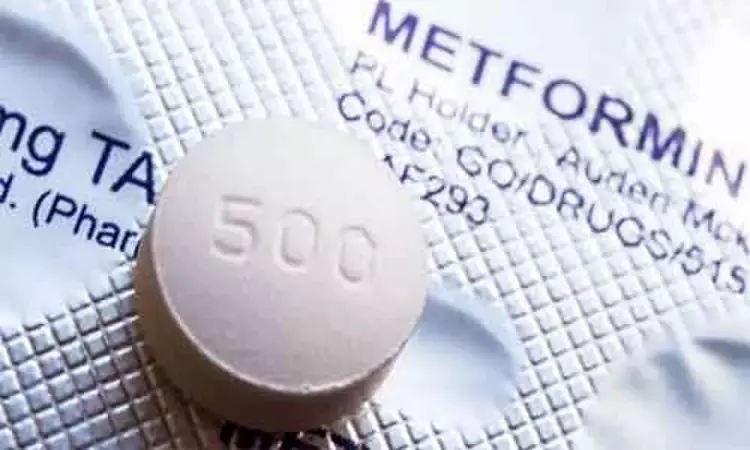- Home
- Medical news & Guidelines
- Anesthesiology
- Cardiology and CTVS
- Critical Care
- Dentistry
- Dermatology
- Diabetes and Endocrinology
- ENT
- Gastroenterology
- Medicine
- Nephrology
- Neurology
- Obstretics-Gynaecology
- Oncology
- Ophthalmology
- Orthopaedics
- Pediatrics-Neonatology
- Psychiatry
- Pulmonology
- Radiology
- Surgery
- Urology
- Laboratory Medicine
- Diet
- Nursing
- Paramedical
- Physiotherapy
- Health news
- Fact Check
- Bone Health Fact Check
- Brain Health Fact Check
- Cancer Related Fact Check
- Child Care Fact Check
- Dental and oral health fact check
- Diabetes and metabolic health fact check
- Diet and Nutrition Fact Check
- Eye and ENT Care Fact Check
- Fitness fact check
- Gut health fact check
- Heart health fact check
- Kidney health fact check
- Medical education fact check
- Men's health fact check
- Respiratory fact check
- Skin and hair care fact check
- Vaccine and Immunization fact check
- Women's health fact check
- AYUSH
- State News
- Andaman and Nicobar Islands
- Andhra Pradesh
- Arunachal Pradesh
- Assam
- Bihar
- Chandigarh
- Chattisgarh
- Dadra and Nagar Haveli
- Daman and Diu
- Delhi
- Goa
- Gujarat
- Haryana
- Himachal Pradesh
- Jammu & Kashmir
- Jharkhand
- Karnataka
- Kerala
- Ladakh
- Lakshadweep
- Madhya Pradesh
- Maharashtra
- Manipur
- Meghalaya
- Mizoram
- Nagaland
- Odisha
- Puducherry
- Punjab
- Rajasthan
- Sikkim
- Tamil Nadu
- Telangana
- Tripura
- Uttar Pradesh
- Uttrakhand
- West Bengal
- Medical Education
- Industry
Metformin effectively controls blood sugar in diabetics With moderate CKD: Study

USA: Blood sugar control is essential to delay or prevent the onset of diabetic kidney disease. There are a number of glucose-lowering medications available but only a fraction of them can be used safely in chronic kidney disease and many of them need an adjustment of dosage for the same.
Researchers have found in a new study that Metformin monotherapy was effective in lowering HbA1c regardless of stage 3 CKD status and, therefore, is a good option for initial blood sugar management therapy in this group of patients. Although people with type 2 diabetes and stage 3 chronic kidney disease (CKD3) are at increased risk of failure of metformin monotherapy.
The study has been published in the journal Diabetes, Obesity & Metabolism.
The researchers further added that the blood sugar lowering efficacy of metformin was the same in both the patients with and without CKD3. This means that metformin is a valuable treatment option for newly treated people with T2D and CKD3.
Consensus is growing that metformin is safe in patients with type 2 diabetes (T2D) and mild to moderate chronic kidney disease (CKD), metformin is no longer contraindicated in patients with stage 3 CKD (ie, estimated glomerular filtration rate 30–59 mL/min/1.73 m2).
Elvira O. Gosmanova, Department of Medicine, Stratton VA Medical Centre, Albany, New York, USA, and colleagues aimed to evaluate the glycaemic efficacy of metformin in people with type 2 diabetes and stage 3 chronic kidney disease.
For this purpose, the researchers conducted a retrospective study including 145980 US veterans with T2D and an estimated glomerular filtration rate (eGFR) ≥30 mL/min/1.73 m2 who initiated metformin monotherapy between November 1999 and July 2017.
Propensity-score-matched cohorts were generated based on baseline variables associated with CKD3 (eGFR 30-59 mL/min/1.73 m2) to evaluate the independent association between CKD3 and metformin discontinuation, the addition of a second hypoglycaemic agent, and changes in glycated haemoglobin (HbA1c) from baseline in those with and without CKD3.
Key findings of the study include:
- In the adjusted analyses, patients with CKD3 had a higher risk of metformin discontinuation or addition of a second hypoglycaemic agent, as compared with patients without CKD (hazard ratio [HR] 1.22, and HR 1.26 respectively).
- Among metformin monotherapy users, there were no differences in the average HbA1c reduction from baseline to 12 or 24 months between patients with and without CKD3.
"The study showed that the presence of CKD3 was associated with increased rates of metformin monotherapy discontinuation as well as a higher risk of failure to adequately control diabetes compared with non-CKD patients with T2D. On the other hand, the glycaemic efficacy of metformin in those CKD3 patients who remained on metformin monotherapy did not differ from non-CKD individuals," wrote the authors.
"These results suggest that metformin monotherapy initiation to improve glycaemic control in CKD3 is feasible; however, these patients may require closer follow-up to monitor for metformin adherence, side effects, and therapeutic efficacy. There is a need for further prospective studies to confirm and understand reasons for the higher risk of metformin monotherapy failure in individuals with CKD3," they concluded.
Reference:
The study titled, "Efficacy of metformin monotherapy in US veterans with type 2 diabetes and preexisting chronic kidney disease stage 3," is published in the journal Diabetes, Obesity & Metabolism.
DOI: https://dom-pubs.onlinelibrary.wiley.com/doi/10.1111/dom.14414
Dr Kamal Kant Kohli-MBBS, DTCD- a chest specialist with more than 30 years of practice and a flair for writing clinical articles, Dr Kamal Kant Kohli joined Medical Dialogues as a Chief Editor of Medical News. Besides writing articles, as an editor, he proofreads and verifies all the medical content published on Medical Dialogues including those coming from journals, studies,medical conferences,guidelines etc. Email: drkohli@medicaldialogues.in. Contact no. 011-43720751


